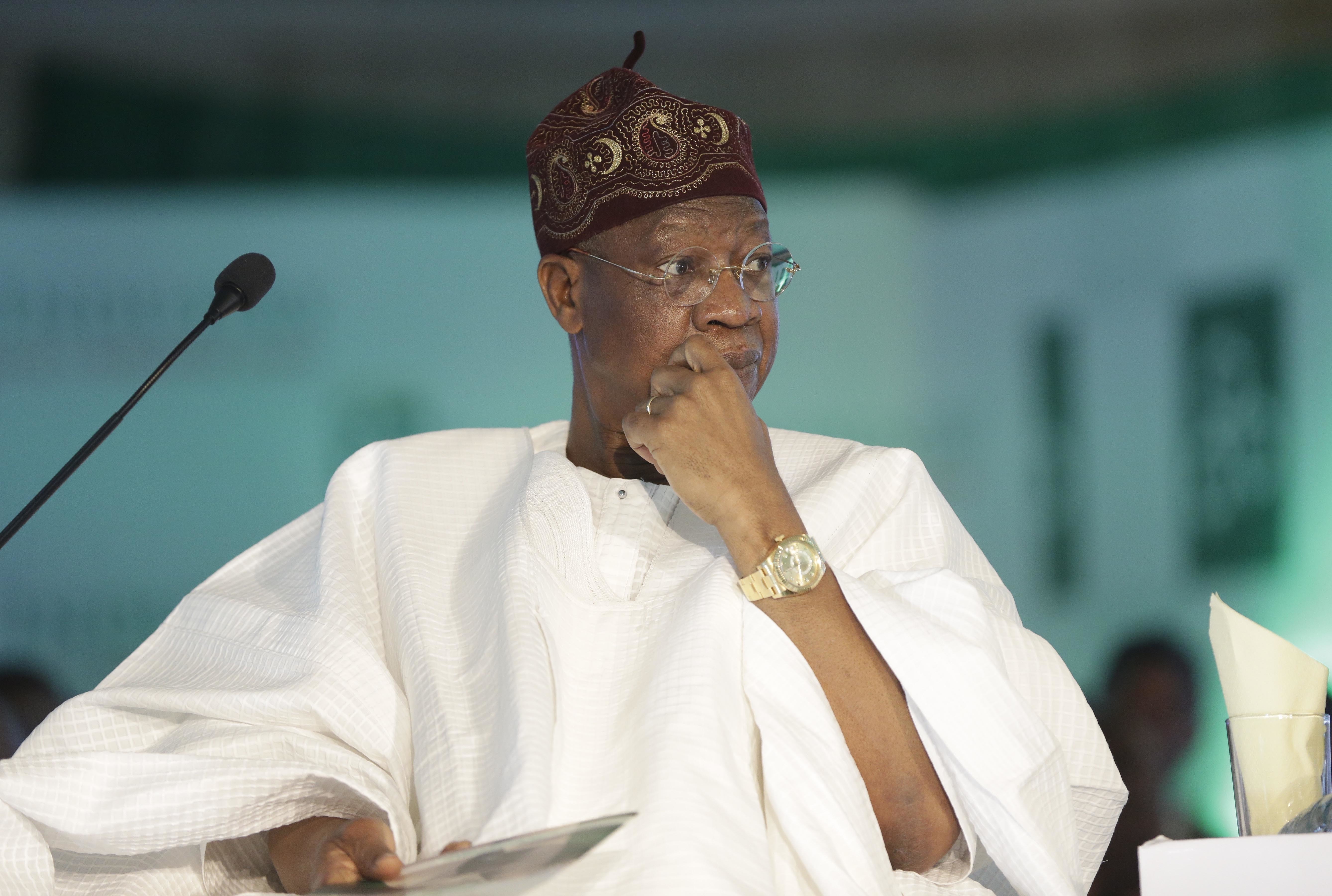
Nigeria denies judge's suspension influenced by election
ABUJA, Nigeria (AP) — Amid growing criticism, Nigeria’s information minister denied on Monday that the president’s recent suspension of the country’s chief justice was related to the upcoming presidential elections.
The suspension of Chief Justice Walter Nkanu Samuel Onnoghen had “nothing to do with the forthcoming elections” and did not “signify the onset of dictatorship or tyranny as some have insinuated,” Minister Lai Mohammed said.
The chief justice faces trial on charges of allegedly failing to declare his assets, which Onnoghen has argued is without merit. This is the first time a chief justice is standing trial in Nigeria, Africa’s most populous country with 190 million people.
Critics say the suspension of the chief justice just three weeks before the election is an effort by President Muhammadu Buhari to weaken Nigeria’s judiciary and pave the way for his election to a second term in the Feb. 16 vote.
The chief justice plays a key role in any legal challenge to what could be a disputed vote.
The Nigerian Bar Association called the suspension an “attempted coup against the Nigerian judiciary” this weekend and the president’s rival called the suspension “an act of dictatorship” meant to influence the election.
The U.S., Britain and the European Union said Saturday that Buhari acted “without the support of the legislative branch.” The U.S. warned this suspension could “cast a pall” over the Feb. 16 vote, in which Buhari seeks a second term.
Buhari said the chief justice’s suspension will continue until the case is concluded and has appointed an acting chief justice, Ibrahim Tanko Muhammed. Muhammed is from Nigeria’s largely Muslim north, like Buhari, while Onnoghen is from the largely Christian south.
The information minister dismissed the uproar as “theater of the absurd,” accusing the opposition of “muddying the waters” and acting in “hysteria.”
Presidential spokesman, Garba Shehu, said Monday the president broke no laws in the suspension and “has done no wrong.”
With tensions ahead of the vote, observers warned against election-related violence.
Oil-rich Nigeria struggles against multiple security challenges, including the decade-old Boko Haram extremist insurgency, and Buhari’s 2015 election was a rare peaceful transfer of power. Diplomats have urged the top candidates to sign a peace pledge.
___
AP reporter Sam Olukoya in Lagos contributed to this report.
The Western Journal has not reviewed this Associated Press story prior to publication. Therefore, it may contain editorial bias or may in some other way not meet our normal editorial standards. It is provided to our readers as a service from The Western Journal.
Truth and Accuracy
We are committed to truth and accuracy in all of our journalism. Read our editorial standards.
Advertise with The Western Journal and reach millions of highly engaged readers, while supporting our work. Advertise Today.












